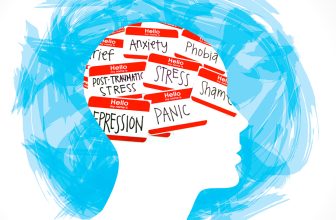Introduction to Mental Health Days
Are you feeling overwhelmed, stressed out, or just downright exhausted? We’ve all been there. Life can be demanding and hectic, leaving little time to focus on our mental well-being. That’s why it’s crucial to prioritize self-care and give yourself permission to take a break when needed. Enter: the mental health day.
Taking a mental health day is not only beneficial but also essential for your overall well-being. It allows you to recharge, reset, and rejuvenate both mentally and emotionally. In this blog post, we’ll explore the importance of prioritizing your mental health, signs that indicate you need a mental health day, how to plan for one effectively, activities to engage in during your “me” time, and tips for making the most of your much-needed break.
So grab a cup of tea (or whatever beverage brings you comfort), find a cozy spot to settle in, and let’s dive into what to do on a mental health day!
The Importance of Taking Care of Your Mental Health
Taking care of your mental health is crucial for overall well-being and happiness. Our society often places a strong emphasis on physical health, but it’s essential to remember that mental health is just as important. Neglecting our mental well-being can lead to stress, anxiety, depression, and other serious issues.
One of the key reasons why taking care of your mental health is so important is because it affects every aspect of your life. When you prioritize your mental well-being, you are better equipped to handle challenges and cope with daily stressors. It allows you to have more fulfilling relationships, excel in your career or studies, and experience a greater sense of joy and contentment.
Additionally, addressing any underlying mental health issues early on can prevent them from escalating into more severe conditions. Just as we go for regular check-ups for our physical health, prioritizing our mental wellness through self-care activities should be an ongoing practice.
Self-care activities such as practicing mindfulness exercises like meditation or yoga can help reduce stress levels and promote relaxation. Engaging in hobbies that bring you joy and fulfillment can also contribute positively to your overall mental well-being.
Remember: taking care of yourself mentally does not mean being selfish; rather it allows you to show up fully in all areas of your life. By prioritizing self-care activities regularly, even if just for a few minutes each day or setting aside time for a dedicated “mental health day,” you are investing in yourself and creating a solid foundation for long-term happiness and success.
Signs That You Need a Mental Health Day
Signs That You Need a Mental Health Day
Life can be overwhelming at times, and it’s important to recognize when we need to take a step back and prioritize our mental well-being. Here are some signs that indicate you may need a mental health day:
1. Constant Exhaustion: Feeling tired all the time, even after getting enough sleep, could be a sign of burnout. If you find yourself lacking energy or struggling to concentrate on tasks, it may be time for a break.
2. Increased Irritability: When small things start triggering big emotional reactions, it’s often an indication that your mental health is suffering. Taking some time off can help restore your emotional balance.
3. Lack of Motivation: If you’re finding it difficult to muster up enthusiasm or interest in activities you once enjoyed, this could be a sign of emotional exhaustion. A mental health day allows you to recharge and rediscover your passions.
4. Physical Symptoms: Chronic headaches, stomachaches, or muscle tension can all be physical manifestations of stress and anxiety taking their toll on your body. Taking the time off can give your body the rest it needs.
Remember that everyone’s experiences are unique and what works for one person may not work for another when it comes to managing their mental health. It’s essential to listen to yourself and honor what your mind and body are telling you.
How to Plan for a Mental Health Day
Planning for a mental health day can be just as important as taking the actual day off. It allows you to maximize your time and ensure that you’re engaging in activities that truly support your mental well-being.
First, start by assessing what you need most on this particular day. Are you feeling overwhelmed and in need of relaxation? Or do you crave some social interaction and connection? Identifying your specific needs will help guide your planning process.
Next, consider the logistics. Determine when would be the best time to take your mental health day based on any commitments or deadlines you may have. Make sure to communicate with work or school ahead of time so they are aware of your absence.
Once you’ve set the date, brainstorm activities that align with your needs and interests. This could include things like practicing mindfulness through meditation or yoga, going for a walk in nature, indulging in a favorite hobby or creative outlet, journaling or reading a book that inspires you.
Remember to prioritize self-care during this time. Plan meals that nourish both your body and mind, ensuring proper nutrition throughout the day. Take breaks whenever needed and avoid overexertion.
Don’t forget about unplugging from technology if it’s causing stress or anxiety. Consider setting boundaries around screen time during your mental health day to allow for more presence and relaxation.
By carefully planning for a mental health day tailored to meet your individual needs, you’ll be better equipped to make the most of this valuable time dedicated solely to supporting and nurturing yourself mentally.
Activities to do on a Mental Health Day
Activities to do on a Mental Health Day
1. Get outside and move your body.
Taking a walk in nature or engaging in any form of physical activity can have significant benefits for your mental health. The fresh air, sunshine, and endorphins released during exercise can help reduce stress and improve your mood.
2. Engage in creative activities.
Whether it’s painting, writing, playing an instrument, or crafting, engaging in creative activities allows you to express yourself and tap into your emotions. Creating something with your own hands can be therapeutic and provide a sense of accomplishment.
3. Practice mindfulness or meditation.
Take time to relax and quiet your mind through techniques such as meditation or mindfulness exercises. These practices can help reduce anxiety, increase self-awareness, and promote overall well-being.
4. Connect with loved ones.
Reach out to friends or family members who bring positivity into your life. Spending quality time with loved ones can provide support, laughter, and a sense of belonging that is essential for our mental health.
5. Indulge in self-care activities.
Pamper yourself by taking a long bath with soothing essential oils or practicing skincare rituals that make you feel good about yourself. Self-care activities not only rejuvenate the body but also nourish the soul.
6.
Try something new or engage in hobbies.
Challenge yourself by trying new activities that interest you – cooking a new recipe, learning a musical instrument online – anything that brings joy! Engaging in hobbies helps distract from daily stresses while providing fulfillment through personal growth.
Remember that everyone’s mental health needs are different; what works for one person may not work for another. Listen to yourself and choose activities that resonate with you personally on this day devoted solely to nurturing your mental well-being.
Tips for Making the Most of Your Mental Health Day
Tips for Making the Most of Your Mental Health Day
1. Disconnect from Technology
One of the best ways to fully embrace your mental health day is by disconnecting from technology. Turn off your phone, log out of social media, and resist the urge to constantly check emails. Give yourself a break from the constant stream of notifications and allow yourself to truly relax and recharge.
2. Practice Mindfulness
Use your mental health day as an opportunity to practice mindfulness techniques such as meditation or deep breathing exercises. These practices can help calm your mind, reduce stress, and increase overall well-being.
3. Engage in Physical Activity
Physical activity has been shown to have numerous benefits for mental health. Take advantage of your day off by engaging in activities that you enjoy – whether it’s going for a walk in nature, trying out a new exercise class, or simply doing some yoga at home.
4. Pursue Hobbies or Creative Outlets
Use this time to indulge in activities that bring you joy and allow you to express yourself creatively. Whether it’s painting, writing, playing an instrument, or gardening – find something that sparks passion within you and dedicate some time to it on your mental health day.
5. Connect with Loved Ones
Reach out to friends or family members who lift your spirits and make you feel supported. Plan a lunch date with a close friend or spend quality time with loved ones who understand the importance of self-care.
6. Get Some Fresh Air
Spending time outdoors can have immense benefits for our mental well-being. Take advantage of your mental health day by immersing yourself in nature – go for a hike, visit a local park, or even just sit outside in the sunshine with a good book.
Remember that everyone’s idea of self-care may be different – what works for one person may not work for another.
Take these tips as suggestions but ultimately listen to what feels right for YOU on your mental health day. Enjoy the break and prioritize taking care of yourself!
Conclusion
Conclusion
Taking care of your mental health is essential for overall well-being, and incorporating regular mental health days into your routine can greatly benefit you. By recognizing the signs that you need a break and planning ahead, you can make the most of these days to recharge and rejuvenate.
On a mental health day, engage in activities that bring you joy and peace. Whether it’s spending time in nature, practicing mindfulness or meditation, pursuing hobbies or creative outlets, or simply taking the time to rest and relax, prioritize self-care activities that nourish your mind, body, and soul.
Remember to set boundaries on this day off from work or responsibilities. Unplug from technology if possible and create a peaceful environment where you can fully immerse yourself in relaxation. This will allow you to disconnect from stressors and focus on nurturing your mental well-being.
Making the most of your mental health day also involves being kind to yourself. Practice self-compassion by letting go of any guilt or judgment associated with taking time for yourself. Understand that prioritizing your mental health is not selfish but rather an act of self-preservation.
Use this time as an opportunity for reflection and introspection. Take stock of what may be causing stress in your life or contributing to feelings of overwhelm. Use this awareness as a starting point for implementing positive changes moving forward.
In conclusion,
Taking care of our mental health should be a top priority in our lives. Mental health days offer us an invaluable opportunity to step back from our busy routines and take proactive steps towards improving our well-being. By recognizing when we need a break, planning ahead for these days off work or responsibilities, engaging in meaningful activities that promote relaxation and self-care, setting boundaries during this dedicated time off from external pressures,
and cultivating self-compassion throughout the process – we can truly make the most out of our mental health days.
So remember: take them when needed; embrace them fully; and watch how taking care of your mental health can positively impact every aspect







